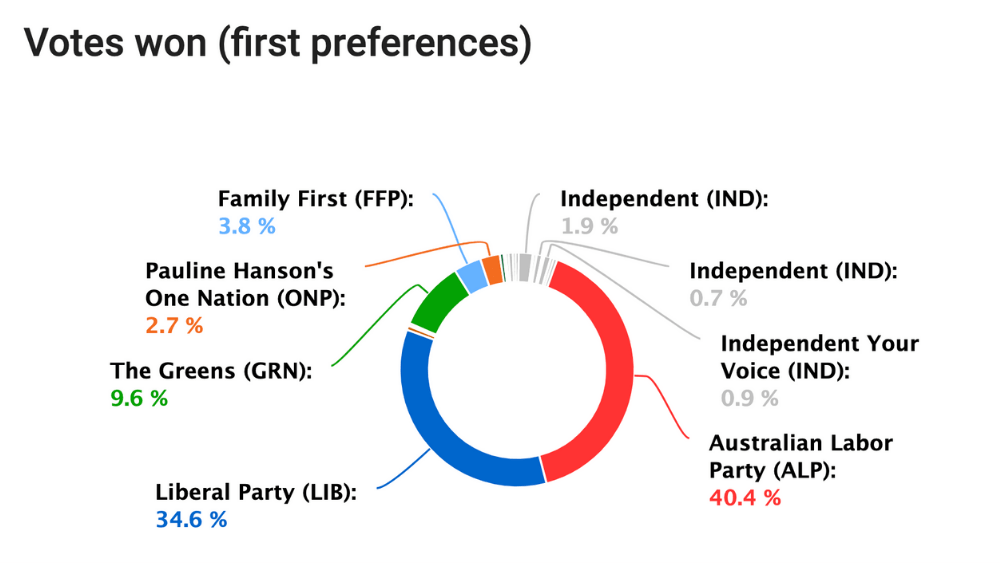SA election tests whether the ‘Christian vote’ is still worth chasing
South Australia’s “Omicron election” gave the state a new premier – Peter Malinauskas, who describes himself as “socially conservative” and on the weekend promised to govern as “pro-business” Labor.
Malinauskas voted against a controversial “abortion until birth” amendment passed under the former Liberal government led by Stephen Marshall. He comes from the right of the Australian Labor Party (ALP), serving for seven years as state secretary of the conservative “Shoppies” Union (The Shop, Distributive and Allied Employees’ Association or SDA).
A reborn Family First Party (FFP) with a Christian base and a new spin-off from it, and a targeted campaign by the Australian Christian Lobby (ACL) made the South Australia (SA) election on the weekend a testbed for the conservative Christian vote.
The ACL boldly suggested that the SA poll was a “life election” and ran a campaign to support MPs who voted to restrict late-term abortion.
This campaign marked a significant shift in how the ACL deals with elections. Instead of suggesting a vote for parties using a scorecard, the ACL scored individual MPs from across the parties.
“From soon after the passing of the Bill in February 2021 to election day, we held forums across the state, made around 20,000 phone calls, direct mailed marginal seats, letterboxed about 100,000 flyers, put up corflutes, and advertised on social media,” ACL’s SA Director Christopher Brohier said. “The results speak for themselves.”
However, the SA election was complicated, with lots of minor parties, the retreat of the SA Best party – which featured strongly last time, and the state’s traditional flirtation with independents.
The Family First Party (FFP) faithful turned out – standing in 30 seats out of 47
Malinauskas, who was endorsed by the ACL campaign, had a more minor swing in his seat of Croydon (2.9 per cent) than Labor achieved statewide (6.9 per cent).
The most prominent Liberal endorsed by the ACL – the former Deputy Premier Dan Van Holst Pellekaan – lost the northern seat of Stuart to independent Geoff Brock. Of two independents supported by ACL, Dan Cregan romped home in Kavel, and Sam Duluk lost in Waite. It is hard to pick a definite “life” pattern.
The FFP party – re-formed by former Labor frontbenchers Jack Snelling and Tom Kenyon registering the party – gives the party somewhat of a Labor/Catholic twist. They were permitted to use the party name by the founder, Pastor Andrew Evans of Influencers Church, an Adelaide Pentecostal megachurch.
At its height, the FFP held a seat in the SA Legislative Council (upper house) from 2002 until 2018, along with a Senate seat (2005-2017).
This election, the FFP faithful turned out – with the party standing in 30 seats out of 47, averaging 5.8 per cent in those electorates. Their main rival for the conservative vote, One Nation Party (ONP), ran in 19 seats for an average vote of 6.1 per cent.
These results translated into 3.8 per cent of first preference votes statewide for FFP, and 2.7 per cent for ONP. But ONP did better in the Upper House, with 4.4 per cent to FFP’s 3.2 per cent.
The lessons are that standing in every seat is necessary for a minor party to make an impression, but that ONP is likely to draw conservative votes away from less-established parties.
Family First might be luckier in SA in a Senate election if Clive Palmer’s United Australia Party drags down the ONP vote and FFP gets its nose in front.
Voters who followed the FFP how to vote card will find their vote is exhausted with the preferencing of parties that did exceptionally poorly, such as the Australian Family Party.
Bob Day, the former Senator for FFP, led the Australian Family Party. But the FFP party faithful went with the reborn party.
Email This Story
Why not send this to a friend?



